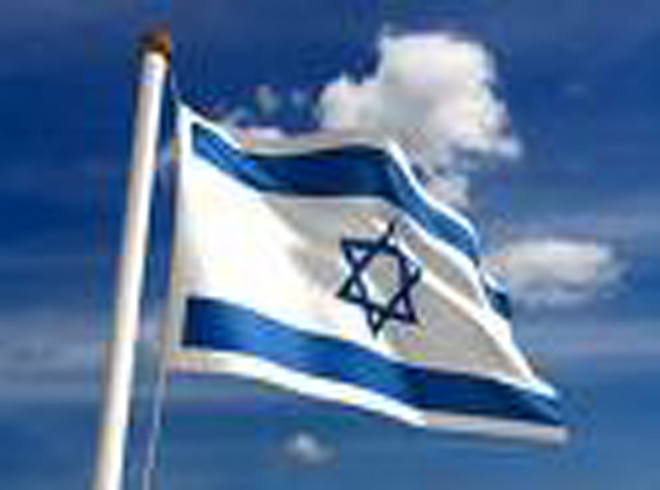Baku, Azerbaijan, Jan. 31
By Azer Ahmadbayli – Trend:
The time has come for the developments that Israel had warned about September last year.
At the time, Israeli Minister of Defense Avigdor Liberman made some comments that are taking real shape today: “All of our effort is to prevent the next war, but in the ‘new’ Middle East the assessments that were familiar in the past, such as low likelihood [of war], are simply irrelevant assessments.”
Liberman further said that war can break out any moment.
An armed clash between the Israel Defense Forces (IDF) and Hezbollah seems almost undoubtful. Nevertheless, Tel-Aviv is still making efforts, hoping to use “political leverage” to prevent production of missiles in Lebanon and its turning into Iran’s “branch”, and by that avoiding a new war. Several warnings have been made in recent days by high representatives of the Israeli leadership.
If the current situation doesn't change dramatically, which is highly unlikely, then an Israeli attack on Hezbollah positions in southern Lebanon and probably on the Syrian-Israeli border will only be a matter of time.
Here I have to quote Mr. Liberman again: “If once we spoke about the Lebanese front — there is no longer such a front. There is the northern front. In any development there may be, it will be one front, Syria and Lebanon together, Hezbollah, the Assad regime and all the Assad regime supporters.”
Prime Minister Netanyahu has likely received the formal “go-ahead” for a military operation during his meetings with US President Donald Trump in Davos and Russian President Vladimir Putin in Moscow. What will it be - air strikes, ground operation, or a combination of the two - is still unknown.
A war or a major military operation requires strong technical and intelligence arrangements.
The IDF report says Hezbollah has an estimated 100,000 rockets and that its 5,000 long-range missiles, located in Beirut and other areas deep inside Lebanon, are capable of carrying large warheads with precision guidance systems, covering all of Israel.
“The past year has been used by IDF to significantly improve preparations for war on the northern front,” IDF Spokesman Brig.-Gen. Ronen Manelis said. “If our enemies understood how much we knew about them, they would be deterred from entering into another conflict for many more years to come.”
“One in every three or four houses in southern Lebanon is a headquarters, a post, a weapons depot or a Hezbollah hideout. We know these assets and know how to attack them accurately if required,” he adds.
In September of last year, Israel conducted its largest military exercise on the northern border in the last 20 years, with tens of thousands of soldiers from all branches of the army, simulating a war with Hezbollah.
Today, the Israel Air Force (IAF) is armed with the F-35I Adir – a customized version of the F-35 stealth multirole fighter jet. It can be assumed, that the fifth-generation combat aircraft allows Israel to have air superiority in the entire Middle East region.
IDF also significantly increased the survivability of its tank fleet by applying Trophy Active Protection system (APS). The Trophy APS successfully intercepts the most modern types of rocket-propelled grenades, anti-tank guided missiles and man-portable anti-tank weapons; the system also notifies a tank crew of the location that the projectile came from, allowing them to fire back quickly.
In 2017, the IDF reportedly began trials of Elbit Systems’ “Iron Vision”, the world's first helmet-mounted display for tanks, which provides the 360° view of a tank's surroundings allowing the crew members stay inside and survey an area without opening the hatches.
Meanwhile, it is illustrative that there are people in Lebanon, including ex-founders of Hezbollah, who raise concerns of the organization’s hazardous behavior, which, as they believe, can turn disastrous for the country.
Lebanese Prime Minister Saad Hariri warned in November last year that he fears Hezbollah's military role in regional conflicts will end up costing his country dearly.
Former Secretary-General of Hezbollah, Subhi al-Tufayli, also said in his recent comments that “the Lebanese people should be saved from sectarianism and the use of weapons.”
He believes that Hezbollah’s weapons are a significant threat to the Lebanese people.
Reportedly, Hezbollah’s possible disarmament may be debated ahead of the Lebanese parliamentary elections, set for early May.
The beginning of hostilities may not only remove the arms issue from the agenda. This could be quite beneficial to Hezbollah, since the Lebanese who are currently critical of the organization, may start seeing it as the main defender of the country against the “Zionist regime.”
Thus, within the upcoming elections, Hezbollah can secure itself with guaranteed success in taking more control in the country.






